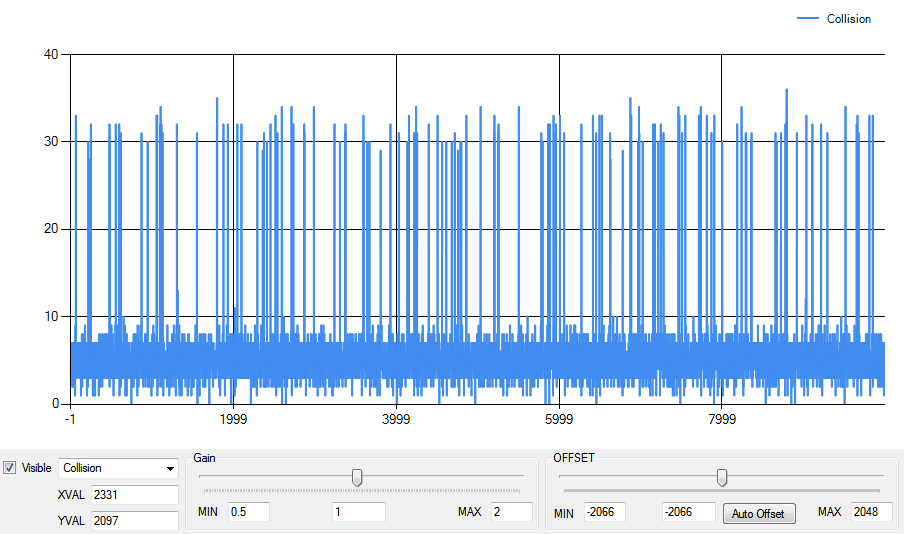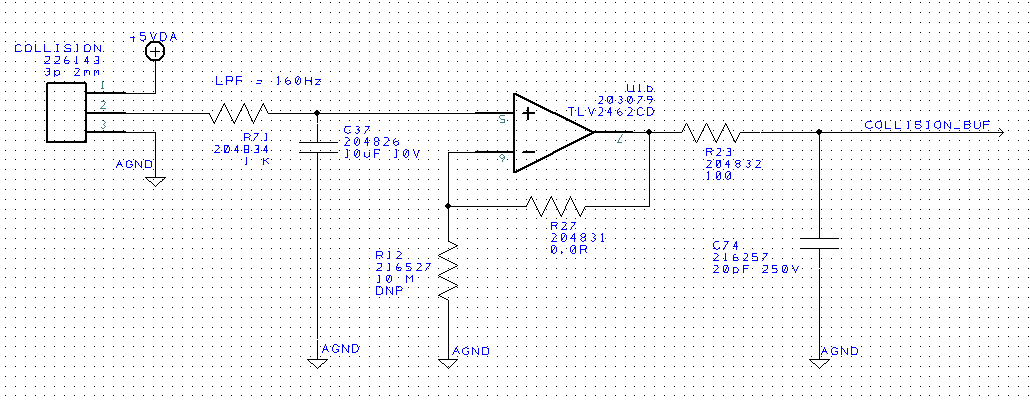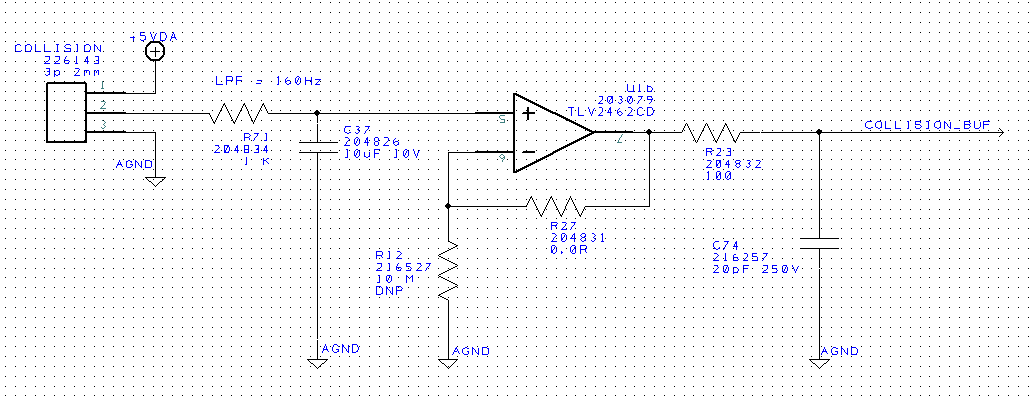We have boards that need to read a bunch of analog signals. In our system, we need the signal reading to be as noiseless as possible. We achieved lower than 20 ADC counts peak to peak for 1.65V signal. But somehow 6 out of 32 boards, have noise more than 30 counts. We have tried to check everything in our system, signal integrity, supply quality that may affect the reading. But there is nothing wrong. In the end, after changing TMS chip, the noise drop to an acceptable value. So the problem lays in a couple of TMS chip ADC. There is no noise in the signal. But after TMS read it, the resulting reading have noise. So is this something like obsolete chip? or are there anything that i need to account for or not knowing? or is it still withing TMS ADC % error? For your information, we usually buy it from mouser.
above is the signal with noise (1.65 V but with offset to 0). All value below 10 count is the signal.



